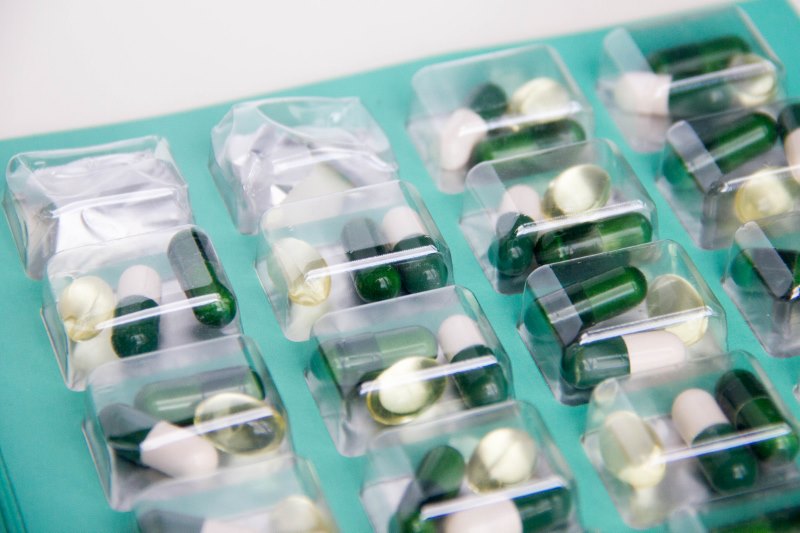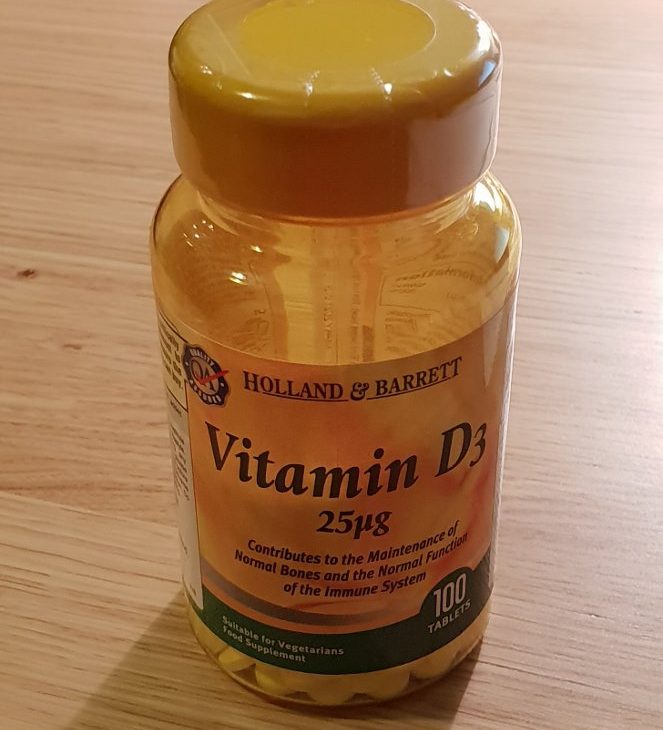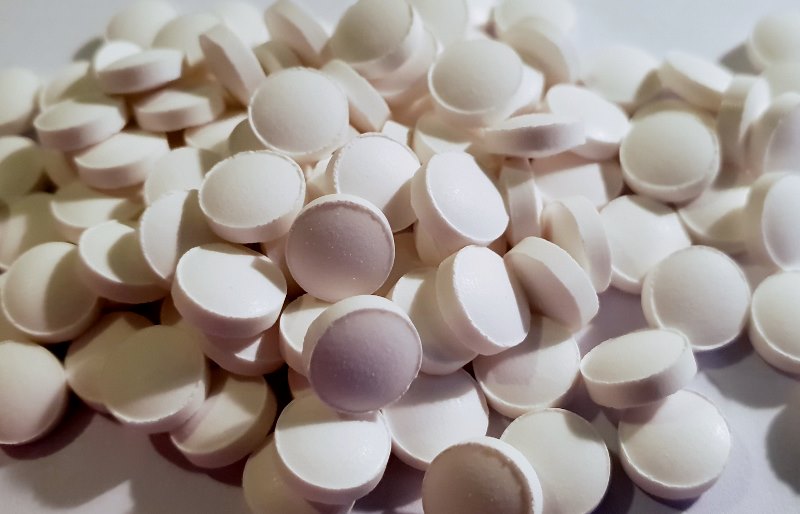In June 2018 I wrote an answer on Quora to the question, Is Chemo Bad. Long story short: yes it is, but it’s a necessary evil. For an idea of the ‘evil’ involved, see my posts on both my first and second experiences with chemotherapy. Anyway, in December 2018, I got a comment on my answer that extolled the virtues of Vitamin D3. So I thought that in this, my first in a series of posts investigating the things that are claimed to help cancer patients, I’d consider; can vitamin D3 treat cancer? Or, at least, help?
The comment went like this (more or less, I might have tweaked the punctuation a little bit):
Each person/case is different…
VITAMIN D3 – your MINIMUM blood level should be 50 ng/ml – if you have had or have cancer it should be 70 – 90!
This cuts your chances of getting cancer by 50%! it can increase survival time dramatically.
Prevention is the best cure, but this results in much better chances for long term survival, once you have cancer.
Quora
All of which sounded amazing, except that I’d never heard of vitamin D3. I knew that we get vitamin D from sunlight, but was not aware that there was a sub-directory, like the B vitamins. Talking of the B vitamins, I was also aware of the mysterious vitamin B17 (Amygdalin), which is still being pedaled as a cancer cure. But Amygdalin is a topic for another time. Suffice it to say; I was more than a little dubious.

Photo by Diego Ballon Vargas on Unsplash
A trip to Wikipedia confirmed that vitamin D3 does, indeed, exist; it’s called Cholecalciferol. Scrolling to the bottom of the page revealed that Cholecalciferol is used as a rodenticide. It was good at killing rats! Things were not off to a good start…
But then, tucked away under the ‘Other Disease’ heading, I found:
A meta-analysis of 2007 concluded that daily intake of 1000 to 2000 IU per day of vitamin D3 could reduce the incidence of colorectal cancer with minimal risk.
https://en.wikipedia.org/wiki/Cholecalciferol
Ooooo: interesting!
The quote linked back to an article in the American Journal of Preventative Medicine (AJPM) from March 2007. Unfortunately, the link only gave access to the abstract, and it was $35.95 to be able to read the full article. Which was too rich for my blood. Besides, there was no guarantee I’d be able to make head nor tail of it. Even so, the AJPM is peer-reviewed and seemed reputable, so my cynicism was waning.
My most trusted site, for all things cancer, is Cancer Research UK, so I tried there next. A search of the site under, ‘Vitamin D’ produced 89 results. The titles of the results fluctuated wildly between two positions:
- Vitamin D helps improve survival from bowel and skin cancer
- Vitamin D and cancer link needs to be “clarified” says Cancer Research UK
Closer inspection, however, showed that the more cautious sounding results referred to cancers like breast cancer and pancreatic cancer. When it came to bowel cancer, there was far more consistency: vitamin D is linked to a reduced risk in bowel cancer.
To be sure, there is no real understanding, as yet, as to why or how it happens, but the simple fact seems to be that: vitamin D3 can help treat bowel cancer. Which is amazing news. Wonderful news. This is, simply, great!

Photo by Ian Stauffer on Unsplash
I was a little concerned that all the references on the Cancer Research UK site were about a decade old, so I checked the current research… In February 2018, the International Journal of Cancer Research and Treatment published an article called, A Review of the Evidence Supporting the Vitamin D-Cancer Prevention Hypothesis in 2017. Let me quote from the conclusion:
The UVB–vitamin D–cancer hypothesis has considerable supporting scientific evidence … Hopefully soon, the clinical evidence will be strong enough that health care systems and agencies will endorse vitamin D3 supplementation as a way to prevent and treat cancer.
http://ar.iiarjournals.org/content/38/2/1121.long
Yay! For more than a decade, now, studies have been showing that vitamin D3 can help to treat cancer. And, it seems, help prevent it too.
I was even able to find confirmation of part of the comment I got on Quora:
The results showed that those with higher vitamin D scores after being diagnosed with cancer were 50 per cent less likely to die from the disease – compared to those with lower vitamin D scores.
Vitamin D helps improve survival from bowel and skin cancer
Even better is that many of these sources are directly stating that it’s okay to get this vitamin D3 from supplements. Which would make like a whole lot easier, if not for the repeated concerns about the damage that a vitamin D3 overdose can do. There are many proponents of taking megadoses of vitamins, like vitamin C. Without getting into the arguments about whether megadosing vitamins is ever a good idea, it’s not something you can do with vitamin D3. Do not overdose vitamin D.

Photo by Simone van der Koelen on Unsplash
Which means we need to know what constitutes an overdose of vitamin D, which means a trip to the NHS site.
The advice from the NHS is that ’10 micrograms (μg) a day will be enough for most people. Don’t take more than 100 μg of vitamin D a day as it could be harmful.’ Children should not take more than 50 μg and infants no more than 25 μg.
My suggestion would be that while 10 μg a day is enough for ‘most’ people, I’ve got bowel cancer. I want to make sure that, if I’m taking the stuff, I’m taking enough to make a difference. That said, I don’t want to kick the arse out of it and give myself problems with my calcium levels. I also want something that I can take all year round, without having to worry about the impact of natural sunlight during the summer. This is partly because I’m lazy and don’t like changing my habits but also because I avoid direct sunlight like the plague. I burn easily!
The quote about Cholecalciferol from Wikipedia, above, indicated that a daily intake of 1,000 to 2,000 IU was fine. Only one small problem: what is an ‘IU’ and how does it relate to μg…?
‘IU’, as it turned out, stands for International Unit. Fortunately, as explained on the Ddrops site, it is easy to convert from IU to μg. Simply divide by 40. So, 1,000 to 2,000 IU becomes 25 to 50 μg. Or, a quarter to a half of the maximum dose. Either of which seems fine, if you don’t work outside.
But I tend to be a but more conservative in nature, which is why I went for the 25 μg option…

And the best thing is, vitamin D3 supplements are easily accessible and relatively cheap. This bottle cost £8.19 ($11/€9), from Holland and Barrett, and provides me with 100 days worth. That’s 8p a day…!
Which is one of the most reassuring things: no one is trying to rip you off…
So, what we seem to have, in Vitamin D3, is something that you can get for pennies, that has scientific, peer-reviewed studies, telling you it’s effective.
For me, this in more than good enough. I will be taking a 25 μg tablet every day for the rest of my life. Or until research tells me otherwise. I will, of course, let my oncologist know what I’m doing just in case she has any objections.
But I doubt she will have, because, as the conclusion of the article Vitamin D and colon cancer, published in WJGO, states:
Epidemiological studies suggest that deficiency of vitamin D increases the incidence of colon cancer and also has a negative impact on the survival of colon cancer patients.
https://www.ncbi.nlm.nih.gov/pmc/articles/PMC4229786/
And I have exactly no desire to have a vitamin D deficiency, because I want a positive impact on my survival rates.
It seems that vitamin D3 really can help treat bowel cancer. It seems to help prevent it too. My suggestion to anyone at risk from bowel cancer, or who is in treatment for bowel cancer, is to start taking vitamin D3 supplements. Check with your doctor and/or your oncologist first, but this seems too good an opportunity to miss.

1 thought on “Can Vitamin D3 Treat Cancer? Or, At Least, Help?”
With high dose vit D don’t forget to add vitamin k2 to avoid arterial and joint calcification. No point in adding to your problems. Also k2 has potential anti cancer properties. Better safe than sorry. Best of luck… Colm